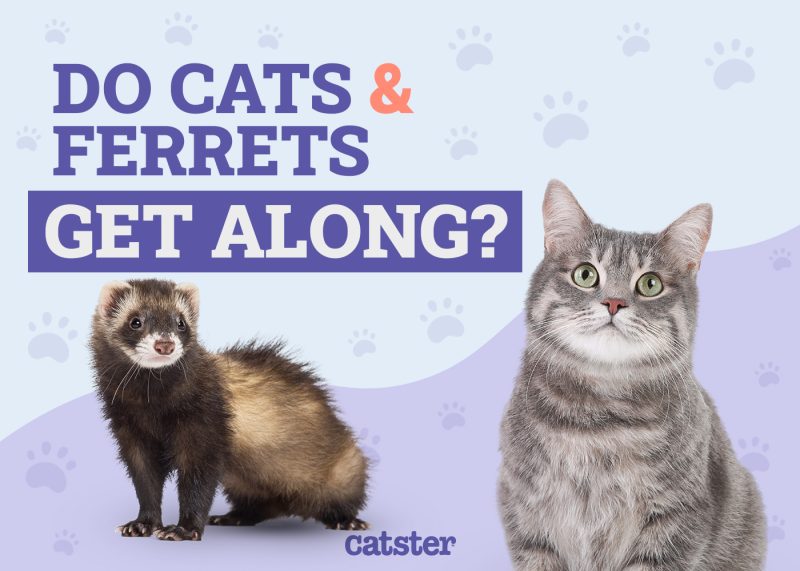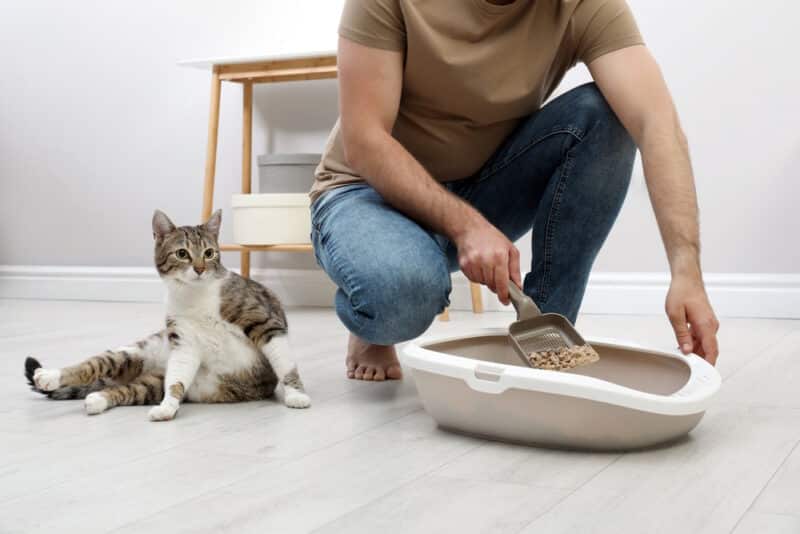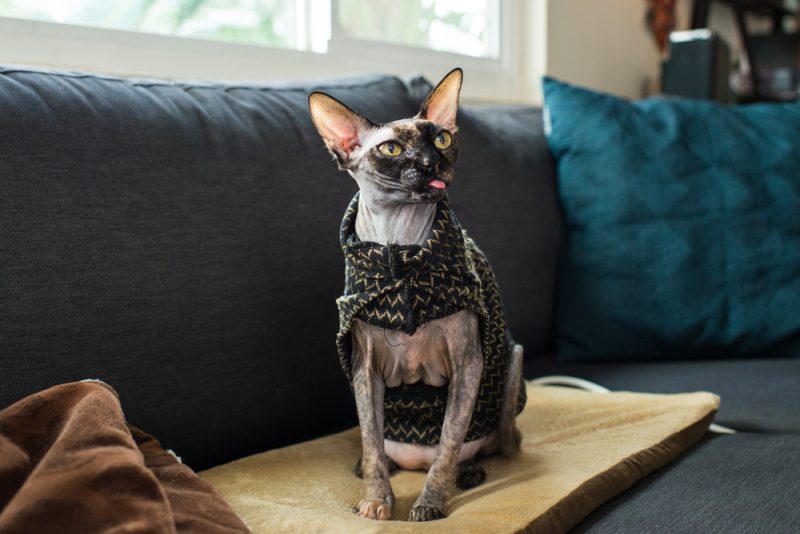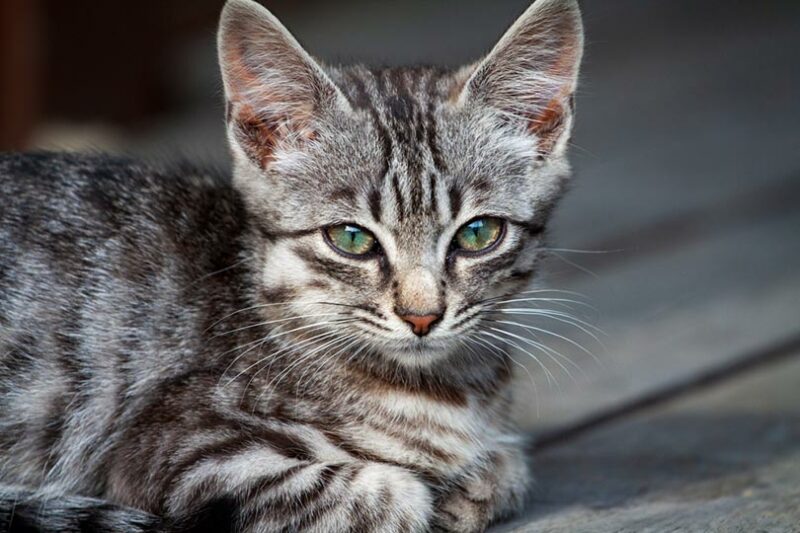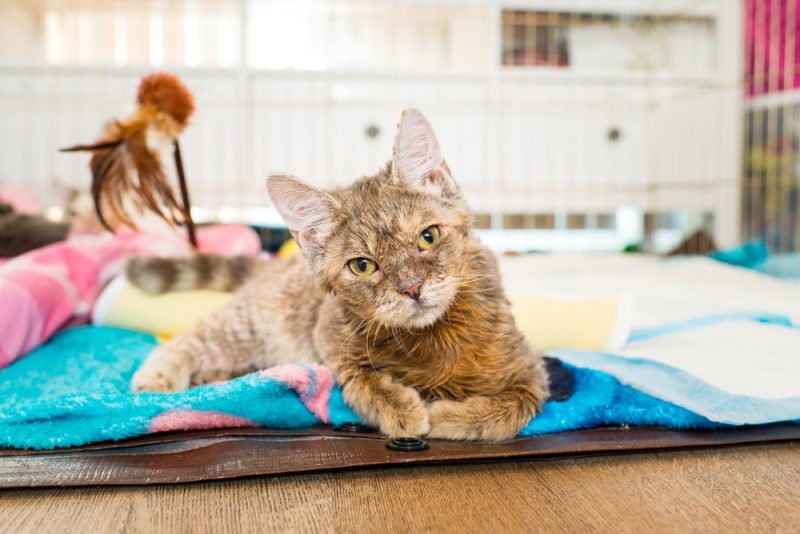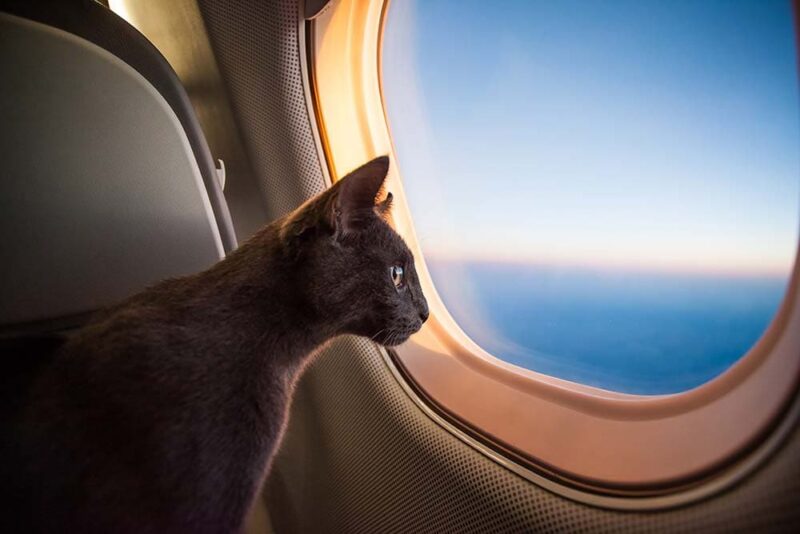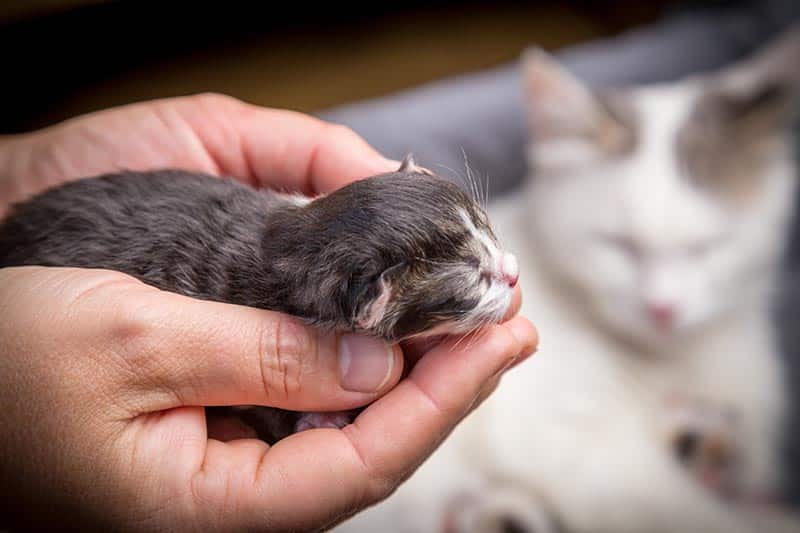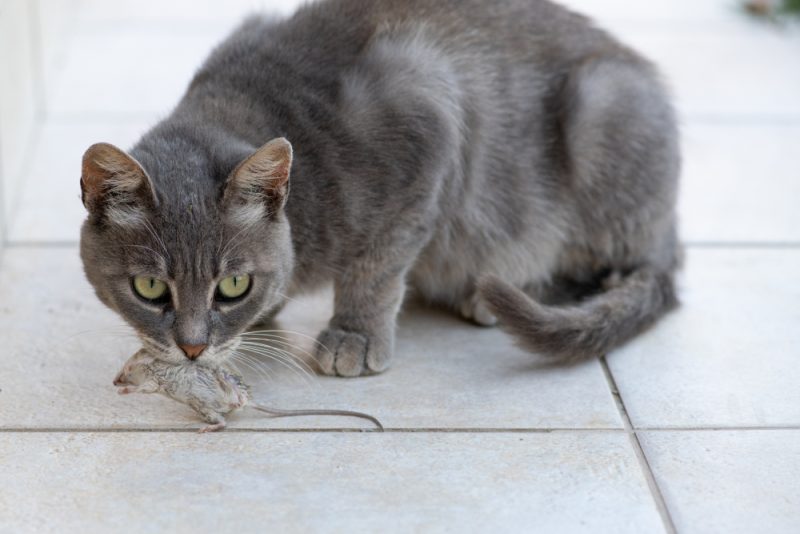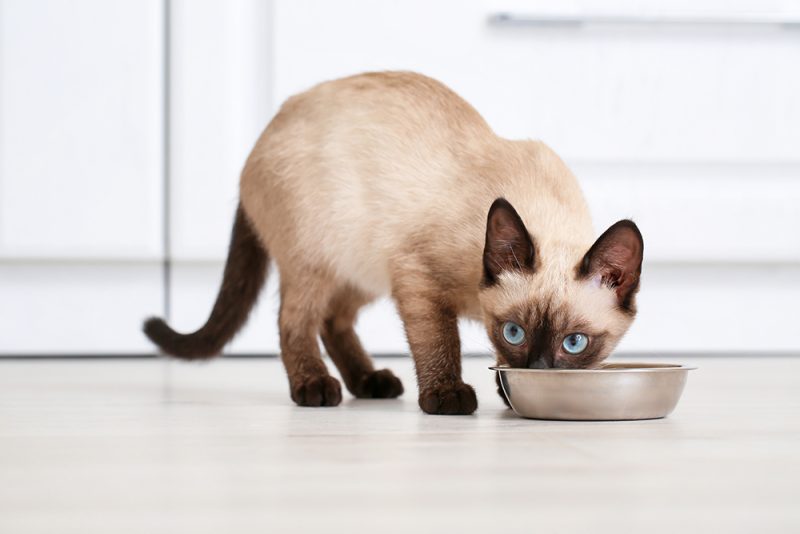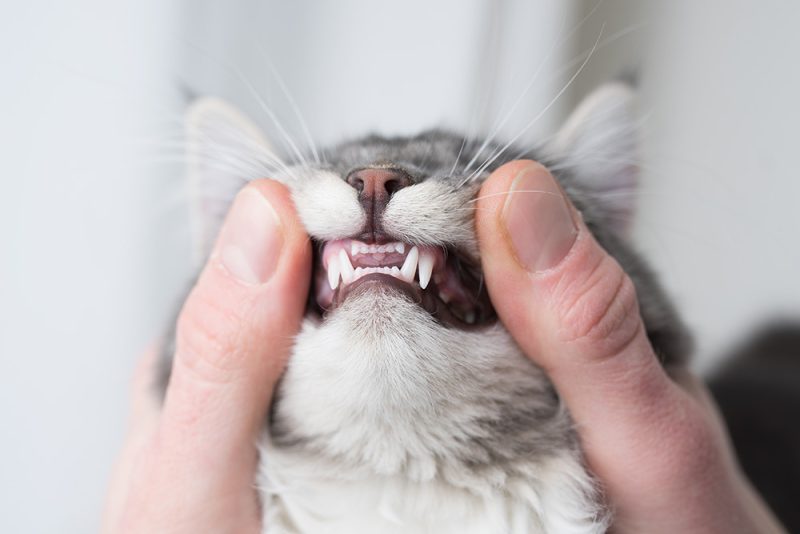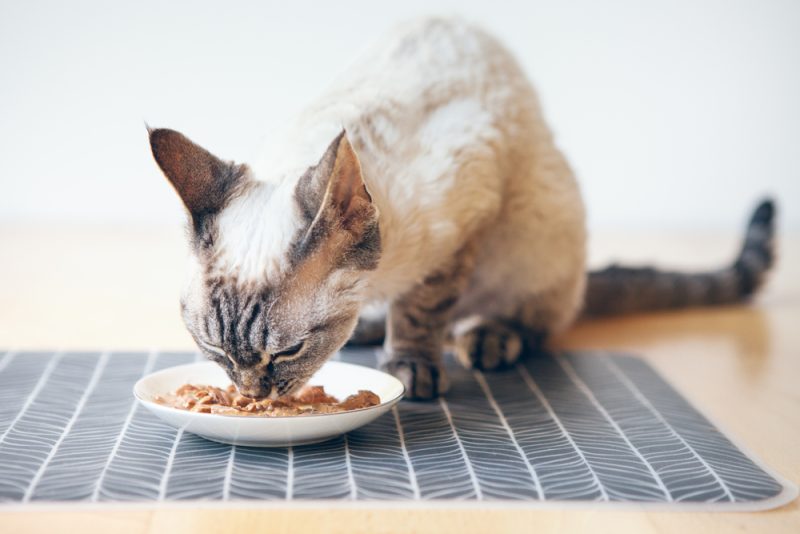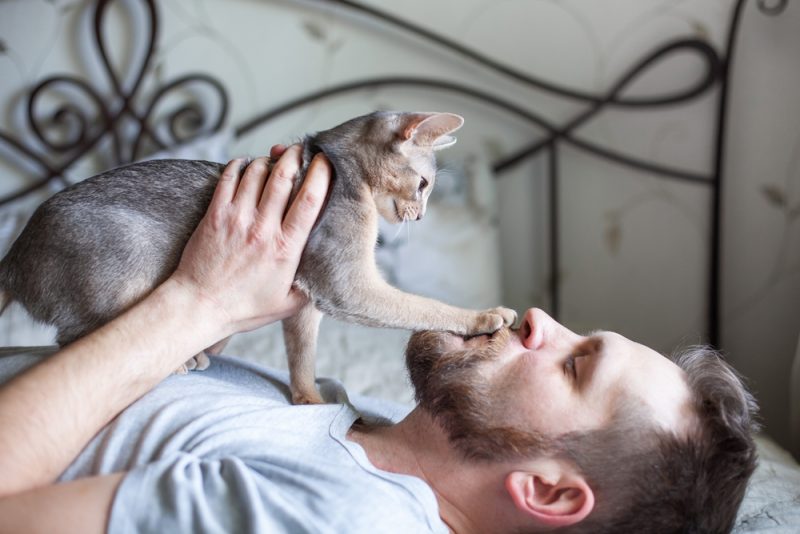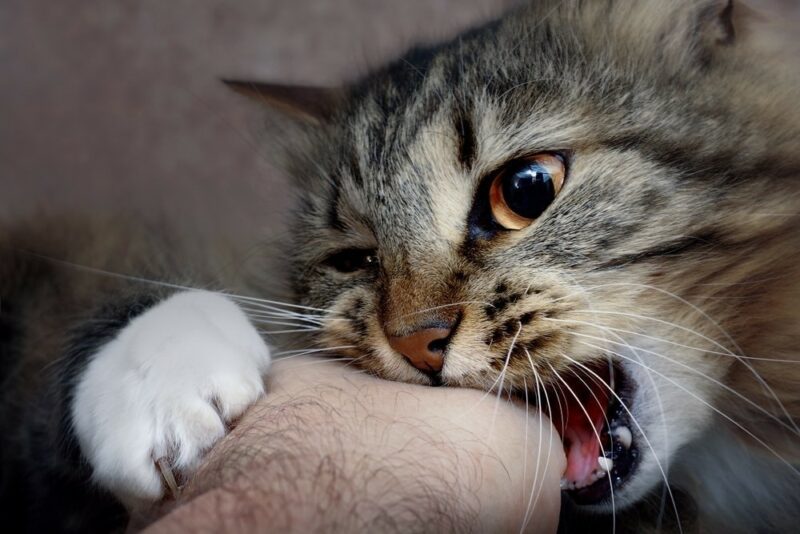In this article
If you are a cat parent but want to introduce a ferret into your family, you’re probably wondering if the two will get along.
These animals are similar and have complementary temperaments, which is why they can technically get along. They love chasing toys, climbing to high places, and running around. However, both cats and ferrets are predators, which is why they should never be left alone unsupervised.
Read on to learn more about how cats and ferrets can get along, their similarities, and essential tips for keeping these animals in the same household.

Do Cats and Ferrets Get Along?
In most cases, cats and ferrets get along quite well. However, it all comes down to the temperament of your cat and your ferret, respectively. If their temperaments are complementary, these animals can play with each other, but you should still supervise each play session.
Ferrets are typically fascinated by cats, while cats may not pay too much attention to ferrets unless ferrets approach them first. Ferrets can occasionally be too much for cats, as they have higher energy levels.
Will Cats Hurt Ferrets? Can the Ferrets Hurt the Cats?
Cats may mostly ignore ferrets, as they’re typically not overly excited about hanging out with animals that are not cats. However, there can be situations in which a cat is extremely afraid of a ferret or where the cat is too playful and accidentally hurts the ferret.
Some cats may have a temper, and as ferrets move quickly and are frequently playful, these cats may consider them an annoyance. Therefore, always consider the temper of your animals before introducing them and supervise any interactions.
Aggressive cats may bite, scratch, or kick ferrets, which could escalate into a fight. During fights, ferrets can also hurt cats, mostly by biting them with their sharp teeth and scratching them with their claws.
That said, ferrets are smaller and lighter than most cats, so they don’t stand much of a chance if an incident occurs. Even in the best case, both animals may be hurt, scratched, or traumatized, which is not ideal.
Can They Coexist?
Cats and ferrets can coexist and even play together, but you need to introduce them properly and always be there when both animals are roaming free, to prevent possible problems.
As long as you’re careful, these animals can be suitable companions. They may not be best friends, but they may occasionally play, eat, climb, or chase toys together.
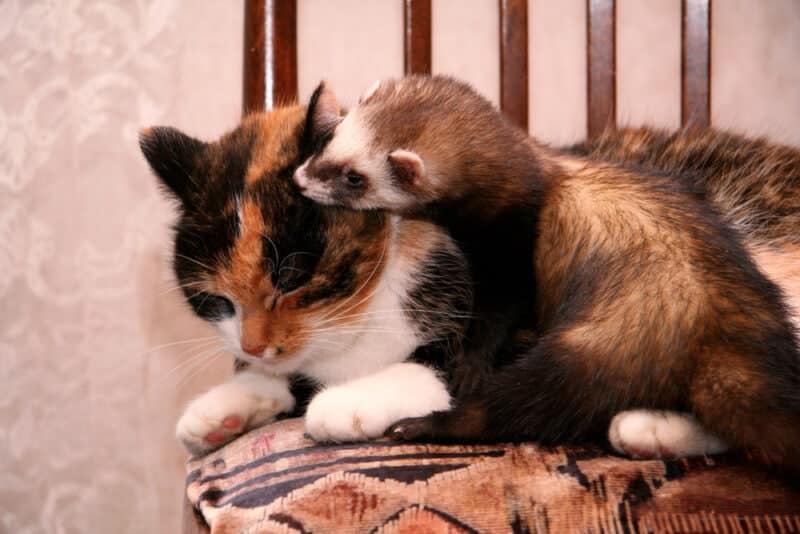

Similarities Between Ferrets and Cats
Cats and ferrets are predators with similar diets, temperaments, and pet needs. These shared features make these animals easy to keep as pets while helping them get along with each other.
Diet
Both cats and ferrets are carnivores, meaning their main diet consists of meat-based foods. These animals have instincts to hunt or scavenge for their prey.
Cats and ferrets need diets high in protein, and you can even give cat food to your ferret in a pinch, but it’s still better to feed cats and ferrets their own respective foods.
Temperament
Both ferrets and cats are curious animals and love to explore new things and strange objects. They love to chase around and climb, which is why they have the potential to develop a good bond.
However, ferrets can occasionally be too active for some cats, as they like to wrestle, tumble, and play. Depending on their personality, cats may love to be active with ferrets, or they may be annoyed by them.
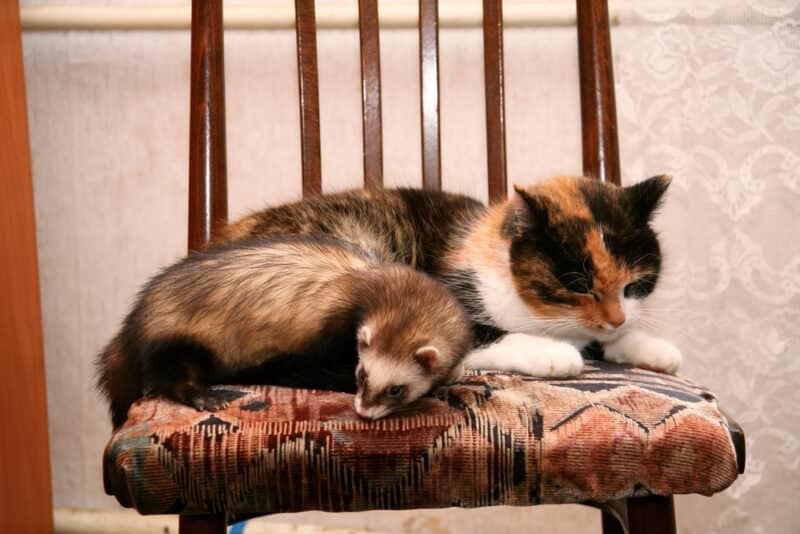
Pet Needs
Another similarity between cats and ferrets is that their pet needs are almost identical.
- A play area
- Litterboxes
- Toys
- Treats
These things can even be shared between the animals if you need to save money, though it’s recommended that your pets have their own respective toys and litter box to avoid territorial squabbles.
One difference between these animals is that your ferret will need a cage, while your cat can roam free around the house. Ferrets are active but clumsy, and they can break and knock over things in your home, which is why you shouldn’t leave them out of the cage without supervision.

Things to Consider Before Introducing Cats and Ferrets
Animals have a similar instinct to humans when meeting someone for the first time: They’re going to get either a good or a bad impression. Therefore, it’s your job to provide a proper introduction between your cat and your ferret to give them the best chance of getting along.
But how do you make this first introduction?
First, know that not every situation is ideal for introducing the two animals.
- Is your animal old or sick? Introducing your cat and ferret if one of the animals is old or sick may not be the best thing to do. It may cause stress or anxiety in the sick/old animal and simply be traumatizing.
- Does your animal have a high prey drive? This is a question that you should ask yourself before introducing your cat and ferret to each other. It’s especially applicable to cats, as they are larger and heavier than ferrets. If your cat or ferret has a high prey drive, it is best to keep the animals separate to prevent possible incidents.
How to Make the First Introduction Between a Cat and a Ferret
Although the personality of your cat and ferret will have the biggest impact on how well they will get along, the first introduction is still crucial to ensure that everything goes smoothly.
- Use neutral ground — Start the introduction on neutral ground because both animals can be territorial. Don’t use the area where you keep your ferret, and don’t be in the room where your cat frequently spends time.
- Keep the ferret in a cage — During the first part of the introduction, keep your ferret in a cage. Allow the cat to approach it so the animals can sniff and get a sense of one another. It may even be helpful to tire out your ferret before the introduction to make it calmer around your feline.
- Keep a safe distance — If both animals are reacting positively, you can let your ferret out of the cage. However, keep a safe distance between the animals just in case something happens.
- Put them on the ground — If everything is still calm, you can place the ferret on the ground and allow your cat and ferret to sniff and touch each other. However, look out for any signs of biting and scratching.
- Supervise them — Supervise the animals while playing. If you notice scratching, biting, or any similar behavior, break things up and consider trying again when both animals are calm.
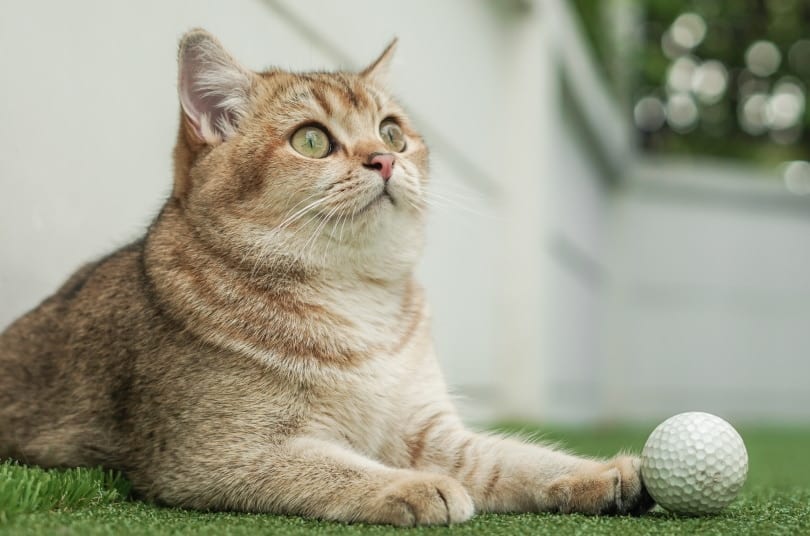
Tips for Keeping Cats and Ferrets in the Same Household
If the introduction goes well, you can keep up the same routine and allow the animals to play while under your supervision. Here are other tips for keeping cats and ferrets in the same household to help you improve their relationship and ensure safety:
- Regardless of the circumstances, avoid unsupervised interactions.
- Provide each pet with their own space in the home.
- Feed the animals separately.
- Ensure that both animals are vaccinated.
- Spay and neuter both animals.

Final Thoughts
Your cat might get along with your ferret, or they may display slight aggression. It all depends on the temperaments of both animals. It is best to introduce them slowly and see how they act; if they get along, great! If not, simply separate the two and do not force any interactions between them. Either way, make sure that all interactions between your ferret and cat are supervised.
Featured Image Credit: Miroshnikova Arina, Shutterstock
